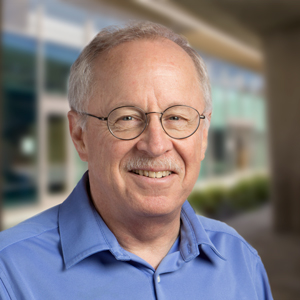Source: Interfolio F180

William Balch, PhD
Research Focus
Modeling the evolution of genetic variation in the human population to describe the role of spatial covariance in managing the function of the protein fold in health and disease in the individual.
The Balch laboratory works to link the evolution of genetic variation in the human population to experimental and computational approaches to describe and manage the function of the protein fold in health and disease.
Defining the role of genetic variation in shaping biological diversity is critical to understanding the global forces at play in health, disease, and aging. We generate an integrated view of genetic variation in the genome and the corresponding changes in the proteome in response to the environment and natural selection using novel machine learning tools that allow us to rigorously assess protein fold function and structure on a residue-by-residue basis at atomic resolution.
Current efforts utilize cell biological, molecular, biochemical and structural approaches in the context of state-of-the-art machine learning Gaussian Process (GP) and in silico computational platforms to link the sequence information found in the genome to the proteome managed by the proteostasis machinery (Hsp70 and Hsp90 co-chaperone systems). Our approach provides a standard model to begin to describe the evolution of protein fold design for any gene dictating health that is compromised in disease – and for development of novel therapeutic approaches to correct the folding problem in the individual.
Education
Ph.D. (Microbiology), University of Illinois, Urbana, IL, 1979Professional Experience
2023 - Present Professor, Molecular & Cellular Biology, Scripps Research2018 - 2023 Professor, Molecular Medicine, Scripps Research
2013 - 2017 Professor, Cell and Molecular Biology, Scripps Research
1988 - 2012 Professor, Cell Biology & Molecular Biology, Scripps Research
Selected Publications
Loguercio, Salvatore; Calverley, Ben C.; Wang, Chao; Shak, Daniel; Zhao, Pei; Sun, Shuhong; Budinger, G.R. S.; Balch, William E. Understanding the host-pathogen evolutionary balance through Gaussian process modeling of SARS-CoV-2. Patterns 2023, 4.
[View]
Balch, William E.; Kelly, Jeffery; Wiseman, R. L.; Labaudiniere, Richard; Jiang, Xin; Grandjean, Julia; Kline, Gabe M.; Zhao, Pei; Wang, Chao; Sun, Shuhong Capturing the conversion of the pathogenic alpha-1-antitrypsin fold by ATF6 enhanced proteostasis. Cell Chemical Biology 2023, 22-42.e5.
[View]
Balch, William E.; Anglès, Frédéric; Wang, Chao Triangulating variation in the population to define mechanisms for precision management of genetic disease. Structure 2022.
[View]
Singh, J. K.; Hutt, D. M.; Tait, B.; Guy, N. C.; Sivils, J. C.; Ortiz, N. R.; Payan, A. N.; Komaragiri, S. K.; Owens, J. J.; Culbertson, D.; Blair, L. J.; Dickey, C.; Kuo, S. Y.; Finley, D.; Dyson, H. J.; Cox, M. B.; Chaudhary, J.; Gestwicki, J. E.; Balch, William E. Management of Hsp90-dependent protein folding by small molecules targeting the Aha1 co-chaperone. Cell Chemical Biology 2020, 27, 292-305.
[View]
Wang, C.; Scott, S. M.; Subramanian, K.; Loguercio, S.; Zhao, P.; Hutt, D. M.; Farhat, N. Y.; Porter, F. D.; Balch, William E. Quantitating the epigenetic transformation contributing to cholesterol homeostasis using Gaussian process. Nature Communications 2019, 10.
[View]
Wang, C.; Balch, William E. Bridging genomics to phenomics at atomic resolution through variation spatial profiling. Cell Reports 2018, 24, 2013-2028.
[View]

